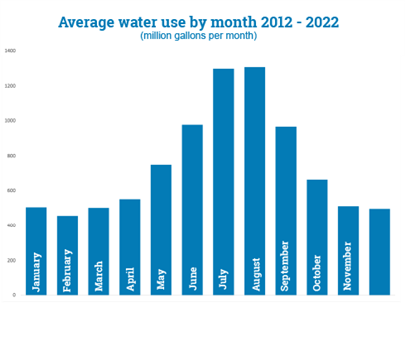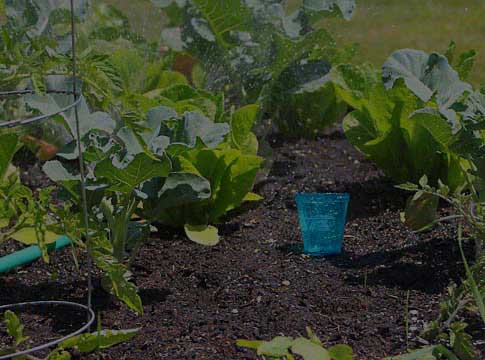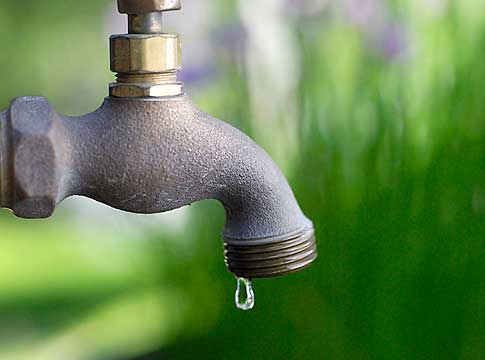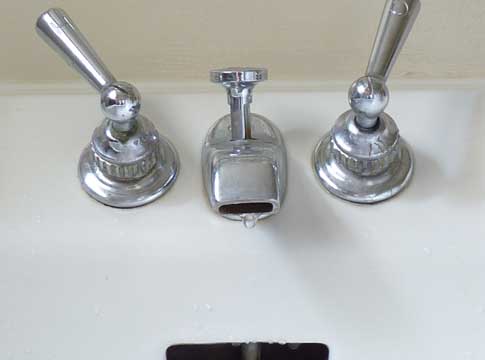Related Programs
Sign up for weekly watering recommendations for your yard and garden.
When you save water, you lower your bill while also protecting our environment. Fortunately, there are many simple ways to conserve this precious resource.
Important notice regarding portal availability
EWEB is upgrading our customer information and billing system to better serve our customers. Some payment options, including online bill pay, pay-by-phone, and Walmart Pay will be unavailable during the last week of November. Click here to learn more.
Electric Outage: 1-844-484-2300
Water Emergency: 541-685-7595
EWEB Main: 541-685-7000
While the costs of producing and delivering electricity and water are rising, EWEB is actively working to reduce the financial impact of rate increases in 2025.
Find Out MoreSmart meters detect when water is left running continuously – saving customers hundreds of thousands of dollars so far this year as we head into the “leaky season.”
Find Out MoreEWEB has again partnered with professional research firm, GreatBlue Research, Inc., to conduct a survey of residential customers, starting October 30, 2024.
Find Out MoreEWEB coordinates the drill as part of our work to protect the McKenzie River – the source of drinking water for more than 200,000 residents of the Eugene metro area.
Find Out MoreLearn how you can prepare for an extended water outage.
Find Out MoreAutomatic move-in service order processing makes signing up for electric service easy for UO students and the entire Eugene community, while keeping utility vehicles off the road and lowering carbon emissions.
Find Out MoreAmid a turbulent energy landscape and rising costs, EWEB has reduced projected rate increases for electricity and water in 2025.
Find Out MoreMichele Victor lost her home, septic system, and two cats to the fire. But thanks to EWEB's Septic System Repair and Replacement Grants, she is one step closer to rebuilding her home.
Find Out MoreHundreds of attendees practiced filling up water containers at Saturday's demonstration event.
Find Out MoreEWEB celebrates our community's commitment to protecting the McKenzie River, the source of Eugene's drinking water.
Find Out MoreLet's "Be Ready" together!
Find Out MoreSubscribers of EWEB's Lead Green programs helped reduce carbon emissions in 2023 by 730 metric tons of CO2e.
Find Out MoreThe rebuilt substation will increase load capacity, improve power reliability, and incorporate seismic resiliency to ensure service to our community for generations.
Find Out MoreThe Eugene Water & Electric Board, Springfield Utility Board and Rainbow Water District are teaming up for the 9th year to provide fairgoers with clean, cold free water.
Find Out MoreAmid rising inflation and other challenges, rate increases are necessary to maintain reliable utility services and fund critical investments in Eugene’s water and electric infrastructure.
Find Out MoreMarch 23, 2023 • Aaron Orlowski, EWEB Communications

EWEB customers use more than twice as much water in the hot, dry summer months, compared to the cold, rainy winter months.The higher summer water use can almost assuredly be attributed to customers watering their lawns and gardens.
During the wet winter months from November to March, when water use is limited to indoor uses such as drinking, bathing and doing laundry, EWEB customers collectively use about 500 million gallons of water per month. As the temperatures rise and the rain dries up during the spring, EWEB’s customers gradually use more water.
During the hottest, driest summer months of July and August, when people are watering their lawns and other outdoor landscaping, water use crests above 1,200 million gallons or even 1,300 million gallons per month. Then, as the temperatures drop and the rain returns, water use drops back to its winter low.
“Though we don’t know precisely what customers use water for, we can estimate that winter water use reflects just indoor use, since customers aren’t watering lawns or other landscaping,” said Mike Masters, EWEB water operations manager. “A variety of factors may be at play, but the higher water use in the summer most likely reflects customers using water for irrigation – whether that’s lawns or other landscaping.”
“We always encourage our customers to conserve water and we have resources available to help them,” Masters added. “During the summer, customers can receive weekly watering recommendations to optimize their water use. We also have rebates for low-flow toilets and tips for how to save water at home. And, of course, always be on the lookout for leaks.”
Sign up for weekly watering recommendations for your yard and garden.
When you save water, you lower your bill while also protecting our environment. Fortunately, there are many simple ways to conserve this precious resource.
Para asistencia en español llame al 541-685-7000, presione 9
Mailing Address: 4200 Roosevelt Blvd., Eugene, OR 97402
Phone: 541-685-7000
Toll free: 800-841-5871
Email: eweb.answers@eweb.org
Customer service phone hours: 8:30 a.m. to 5 p.m. Monday - Friday



